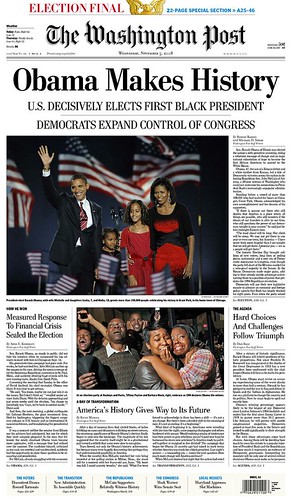Back in April of this year, a story came out on NPR about a young United Methodist minister who “lost her faith” and turned to atheism. This morning I read yet another human interest piece about a preacher—this time a Pentecostal pastor in the buckle of the bible belt—not simply turning atheist, but going on to become a leader in the atheist movement. As one who has herself left Christianity behind, you would think that such stories would appeal to me; that I would applaud these folks for figuring it out and walking away from religion. But in fact, I find this…sad. Sad because their loss of faith truly shattered the lives of these people. And sad because they went from one extreme to the other without investigating any other possibilities.
How difficult it must be for a member of the clergy to lose faith! Their lives have been utterly committed to the “facts” about God and God’s relationship with human beings as those facts are disseminated by the church in which they have become immersed. These things give their lives meaning, structure and direction. To function outside of their circumscribed reality is unthinkable. Until something happens, the scales drop from their eyes; they understand a truth outside of the rules. They grapple with questions about things that had never, ever come into question before. How can a “truth” turn out to be untrue? If this truth is a lie, then all religion is a lie. And God is a lie as well. Quite a leap, don’t you think? Isn’t it the height of human hubris to conclude that if God isn’t exactly what I believed, then there is no God at all? How can that even be possible?
It’s no great leap for me to believe that the “God” preached by most human religions—at least, the Abrahamic ones—is a being created in the image of humans by humans, largely for purposes that have little to do with holiness or spirituality. Or, at the very least, the aspect of the Almighty with which the ancients came into contact (and I have no doubt that there was a point of initial contact somewhere along the line, as well as continuing contact which might or might not be recognized as such) has been so manipulated, shrouded, mystified, politicized and fought over that what is left has, perhaps, only the tiniest threads of connection to the Creator of the Universe.
And yet, those tiny threads are enough. Enough for millions of our fellow passengers on spaceship Earth to enjoy a satisfying relationship with the Almighty through those very religions. And I don’t begrudge them this. As long as their concept of God can help them to live purposeful lives, to do good and not injure or de-humanize others, then they are welcome to it! Just because it is not MY chosen path doesn’t mean it is not recognized or validated by the Creator of All Things. My own connection to the Creator is but a tinier than tiny thread, tenuous and so thin as to be nearly non-existent at times. But still—enough.
It is tragic, though, that so many of our human religions are founded upon such a narrow interpretation of God that when a believer discovers something that falls outside that interpretation, his or her only conclusion must be that, of course, there is no God. Black and white. All or nothing. Why…WHY are we so determined to place limits upon the Almighty that when the Almighty proves itself to be outside those limits, we can no longer believe? Why do we strive to paint God in terms a human can grasp, then walk away in disgust when we get an inkling that God is NOT that? The Creator of the Universe—of stars and solar systems and galaxies far beyond our capacity to comprehend—must be so much more. Why can’t we let God be God?
Over the past several years, I’ve watched with some dismay as fundamentalist Christianity has risen to the level of political force in this country. Here is a group of single-minded people doing exactly what I view as anathema when it comes to spirituality—taking up “your” version of it and flogging the rest of the world until they grab it, if only to get you to stop beating them up with it. (And another group of powerful people who never have enough power, it seems, trying to take advantage of the exponential growth of the Christian right in order to advance its own agenda.) But I wondered, what is behind this surge of “churchiness?” What need is religion filling with folks who might not have given a fig for it a decade or two ago?
One of the answers I came up with was, “Community.” Human beings are communal animals. Most of us seem to crave “belonging”—to one group or another. Time was, one’s neighborhood or town or country provided plenty of community; communities that may or may not be tied together by a common religion. Nowadays, the population is so mobile that we hardly stay long enough in a neighborhood or town, or even a country, to become part of a community. Religion tends to follow wherever we roam, and it can be a “first contact” source of community for an increasingly mobile population. You can “belong” to it even if you upsticks and move across the country every year or two.
One of the most tragic things about these young pastors who lost their faith was their eventual ouster from the communities of which they had been, up until that time, integral and important members. Both these pastors ultimately were attracted to atheism largely because they discovered a community of un-believers to which they could reach out and belong. It’s a shame that the political/religious culture of our time tempts us so overwhelmingly to define ourselves through our religiosity—or lack thereof. I can’t help but think these two young pastors would have been better served if they had joined a book club to satisfy their need for community, thus giving themselves time—and perhaps new resources—for exploring the infinite facets of the human connection to the Creator of All Things.
My hope for the human race—and America in particular—is that we allow ourselves to entertain the possibility that the Almighty is as wondrous and diverse as its creation; and that there are more ways to acknowledge and connect to It than there are grains of sand on a beach. If we give ourselves, and each other, the permission and freedom to do that, we will become a truly great, and blessed, society.
And my hope for these two newly-minted atheists is that they not consider their most recent choices …irreversible.
Subscribe to:
Post Comments (Atom)



















I too find it sad that these clergy are leaving their faith in God, or the possibility of God. In seminary I had to read a long systematic theology book inwhich the theologian described God as Being and creation as being - human beings are part of the lower case beings of creation. But God, upper case Being contains within God's self all of creation, including human. ANd human beings have a particular relationship with Being because of our capacity to the think, reason, discern, and embrace abstract thinking such as - spirituality and faith - in other words we don't just live by our reptilian brains but we have a frontal lobe and in that the capacity for a higher state of being.
ReplyDeleteThere's faith and there's religion. If we're lucky sometimes they overlap. If you imagine God (whoever or whatever he/she is)as a football field, what we understand is about the width of one of those white lines.
ReplyDeleteI just about get out the door and I keep finding puzzle pieces that give me hope. And there's a lot more than I can possible put in a comment.